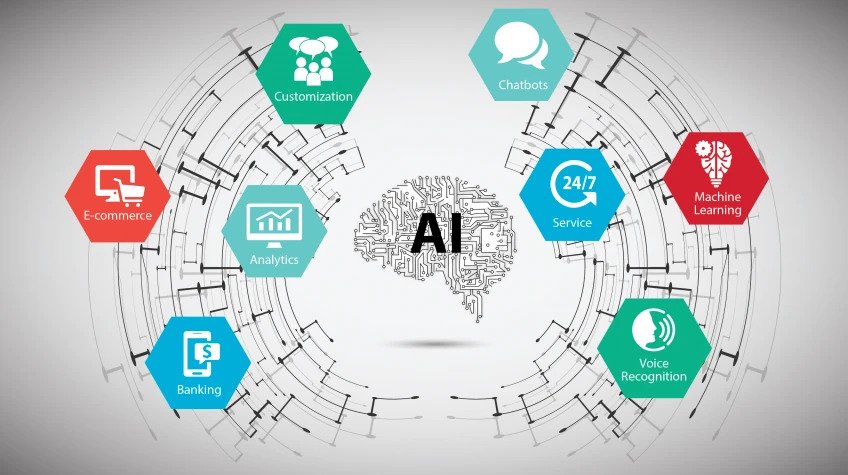In the dynamic digital landscape, content marketing has emerged as an invaluable asset for brands vying to carve a distinctive identity, engage audiences, and drive conversions. Gone are the days when merely scattering keywords throughout web content guaranteed visibility. Today, with the rapid influx of technologies and changing consumer behavior, the essence of content marketing is evolving with an unprecedented pace.
The Content Renaissance
As we venture deeper into the digital age, content marketing isn’t just about informing; it’s about engaging, inspiring, and conversing. It’s a two-way street where brands narrate a story, and audiences respond, leading to a symbiotic dance of mutual value exchange. Content, in its various forms, serves as the bridge connecting the brand’s essence with the audience’s expectations.
The Rise of Personalized Content
With the advent of AI and machine learning, personalization has seeped into the core of content marketing. Today, content isn’t just tailored for a target audience but individualized to resonate with specific user preferences, behaviors, and journeys. Every piece of content is a personalized narrative echoing the individuality of each user, leading to enhanced engagement, loyalty, and conversions.
Adaptive Content Strategies
As the nexus between technology and content marketing strengthens, adaptive content strategies are coming to the forefront. These strategies encompass a dynamic approach where content constantly evolves to resonate with the shifting paradigms of consumer behaviors, preferences, and technological innovations. Every narrative spun is a reflection of the ongoing trends, ensuring that the content isn’t just relevant but also anticipative of future shifts.
The Integration of Visual Content
Visual content, especially videos, has transcended from being merely appealing to becoming essential. The digital age is visually driven. The integration of augmented reality (AR) and virtual reality (VR) is elevating the visual content landscape. For brands, this transformation isn’t just about visibility but creating experiential narratives. It’s about telling stories that are not just seen but felt, leading to immersive brand experiences.
The Power of Interactive Content
Interactive content is steering away from one-dimensional communication. Quizzes, polls, interactive videos, and other forms of engagement-centric content are fostering an environment of active participation. Brands are no longer just storytellers; they are facilitators of dynamic, interactive, and participative experiences that allow audiences to not just consume content but be a part of its creation.
Artificial Intelligence and Machine Learning
In the rapidly evolving digital landscape, artificial intelligence (AI) and machine learning (ML) are not just buzzwords—they are transforming content marketing. AI enhances personalization, tailoring content to meet individual user preferences and behaviors. This level of personalization ensures that each piece of content resonates with the audience, increasing engagement and conversion rates.
Machine learning algorithms analyze vast sets of data to predict what type of content will appeal to different audience segments. It’s a blend of science and art—using data to inform creative processes, ensuring that content isn’t just engaging but is also aligned with the objectives of driving traffic, engagement, and conversions.
Data-Driven Insights
Content marketing in the digital age is rooted in data. Every piece of content is a source of data, offering insights into audience behaviors, preferences, and engagement patterns. This data is gold for marketers, offering actionable insights to refine content strategies.
Metrics are no longer just about views and clicks; they delve into engagement, interaction, and the impact of content on the customer journey. This shift to data-driven insights ensures that content marketing isn’t about volume but value, quality over quantity, and engagement above all.
The Rise of Voice Search
As smart speakers and voice assistants become commonplace, content must adapt to this auditory landscape. This is not just a shift in format but a transformation in content discovery. SEO strategies are evolving, focusing not just on keywords but also on conversational language, ensuring content is discoverable and engaging for voice search users.
This transformation underscores a broader shift in content marketing—it’s adaptive, evolving with technologies, trends, and consumer behaviors. It’s a journey of constant refinement, ensuring that content not just reaches the audience but resonates, engages, and converts.
The Integration of Virtual and Augmented Reality
Virtual Reality (VR) and Augmented Reality (AR) are no longer confined to the realms of gaming and entertainment. They are infiltrating the content marketing space, offering immersive experiences that elevate audience engagement to unprecedented levels. For instance, a real estate company might use VR to offer virtual tours of properties, while retailers can leverage AR to allow customers to visualize products in their own space before making a purchase.
Interactive Content
The digital age has witnessed a surge in the popularity of interactive content. Quizzes, polls, and interactive videos are examples of content that not only engage the audience but also enhance user experience. Interactive content is potent in facilitating audience participation, collecting data, and providing personalized and instant feedback, aligning with the consumer’s demand for customized and engaging content experiences.
The Emergence of Blockchain in Content Marketing
Blockchain is steadily making its way into content marketing. Though primarily associated with cryptocurrencies, blockchain’s transparency and security hold the potential to address issues like ad fraud and ensure privacy. It’s a new frontier, and while it’s still nascent, it holds the potential to revolutionize content verification, quality assurance, and the credibility of digital content.
Personalization at Scale
Data analytics, AI, and machine learning are at the forefront of enabling personalization at scale. Content marketers can now deliver personalized content experiences to large audience segments, aligning content with individual preferences, behaviors, and interactions. It’s an era where content is not just about the message but also about delivering the right message to the right audience at the right time.
Future Trends and Predictions
As we proceed further into the digital age, technologies like AI, machine learning, VR, AR, and blockchain will continue to evolve, and with them, so will content marketing strategies. Marketers will leverage these technologies to create highly personalized, interactive, and immersive content experiences. Data will be the cornerstone, driving insights, strategies, and refinements to align content with evolving audience preferences and behaviors.
Content will be adaptive, responsive, and predictive, with technologies enabling real-time content modifications to align with real-time audience interactions and behaviors. It’s a future where content is not just king but a dynamic entity, constantly evolving, adapting, and responding to the digital ecosystem.

Related: Check out our free SEO suite

Chatbots and Personalized User Experiences
AI-driven chatbots have reinvented content delivery. Instead of passive consumption, users can now interact with content. For instance, a user visiting a tech website can interact with a chatbot to get recommendations on articles, tutorials, or products based on their interests. This one-on-one interaction, although automated, offers a deeply personalized experience, increasing the chances of conversion.
Repurposing Content: Maximizing Reach and Impact
In the digital age, content creation isn’t a one-and-done deal. Businesses need to strategically repurpose and redistribute content across channels. A blog post can be transformed into a series of social media posts, an infographic, or even a podcast episode. By repurposing, brands can ensure they reach audiences across platforms and preferences without continually churning out new content.
Embracing Community and Collaboration
Modern content marketing is as much about listening as it is about broadcasting. Engaging with the community, seeking feedback, and encouraging user-generated content can infuse a brand’s content strategy with authenticity. Collaborations, whether with influencers or industry peers, can broaden reach and bring fresh perspectives.
Data Analytics and Insights
In today’s digital age, the integration of data analytics into content marketing is no longer an option but a necessity. Companies have access to a wealth of data that can transform the way they create and disseminate content. Every click, share, and comment can be tracked, analyzed, and converted into actionable insights to refine content strategies.
Data-Driven Content Creation
Armed with data, content creators can understand what resonates with their audience. It goes beyond basic demographics to encompass behavioral patterns, preferences, and pain points. This enriched insight ensures content is not only engaging but also deeply personalized, addressing specific needs and interests.
A/B Testing
In the quest for optimization, A/B testing emerges as a critical tool. By creating variations of content and measuring their performance, businesses can identify what elements – from headlines to call-to-actions – are most effective, allowing for iterative improvements that enhance engagement and conversions.
AI and Machine Learning
AI and machine learning are not futuristic concepts but present-day tools that are reshaping content marketing. AI-powered tools can now generate content, from basic news reports to more complex narratives. However, the true power of AI lies in personalization and automation.
Personalization at Scale
AI enables hyper-personalization. Each piece of content, recommendation, or interaction can be tailored to the individual, based on their past behaviors and predictive analytics. It ensures every user journey is unique and personalized, increasing engagement and loyalty.
Automation
AI-driven automation frees up marketers to focus on strategy and creativity. Routine tasks, from scheduling to reporting, can be automated, ensuring efficiency and accuracy.
Future Trends
As we look towards the future, several trends are set to define the content marketing landscape. Virtual Reality (VR) and Augmented Reality (AR) are making immersive content experiences possible. Blockchain could revolutionize content monetization and copyright issues, while the rise of voice search is set to redefine SEO strategies and content formats.
Immersive Experiences
With VR and AR, content is no longer confined to two dimensions. Brands can create immersive, interactive experiences that engage audiences like never before. The future will see content that is not just seen or heard but also experienced.
Voice Search and SEO
As voice-activated devices like Alexa and Google Home become ubiquitous, content optimized for voice search will be crucial. It’s a shift that will see a rise in conversational, natural language content and a new set of SEO best practices.
Conclusion
In the journey from the past to the present, and heading into the future, content marketing is morphing, adapting to technological innovations, and changing consumer behaviors. It’s a journey of evolution from static, one-size-fits-all content to dynamic, personalized, and interactive experiences. Each technological advancement, from AI to data analytics, isn’t just a tool but an opportunity to make content more relevant, engaging, and effective.
The measure of success in content marketing is no longer limited to traffic and engagement metrics but is deeply intertwined with the quality of customer experiences and the value delivered. In a world inundated with content, quality, relevance, and personalization are the differentiating factors. They are the pillars that will uphold content marketing strategies of the future, steering brands towards unprecedented levels of engagement, loyalty, and success.
As marketers, the task is to be vigilant, adaptive, and innovative. Every piece of content is a stepping stone towards a deeper, more meaningful connection with the audience. In this era, content is not just king – it’s the catalyst for relationships, the driver of experiences, and the cornerstone of a brand’s digital existence.
READ NEXT:
- 19+ Top Customer Relationship Management (CRM) Software: What’s Best?
- SEO Best Practices for Green E-Commerce Sites
- Corporate Cashflow: SEO for Business Banking Websites
- Using Social Platforms to Amplify Biotech Research
- Why “Content is King” and How to Make Yours Reign Supreme






















Comments are closed.